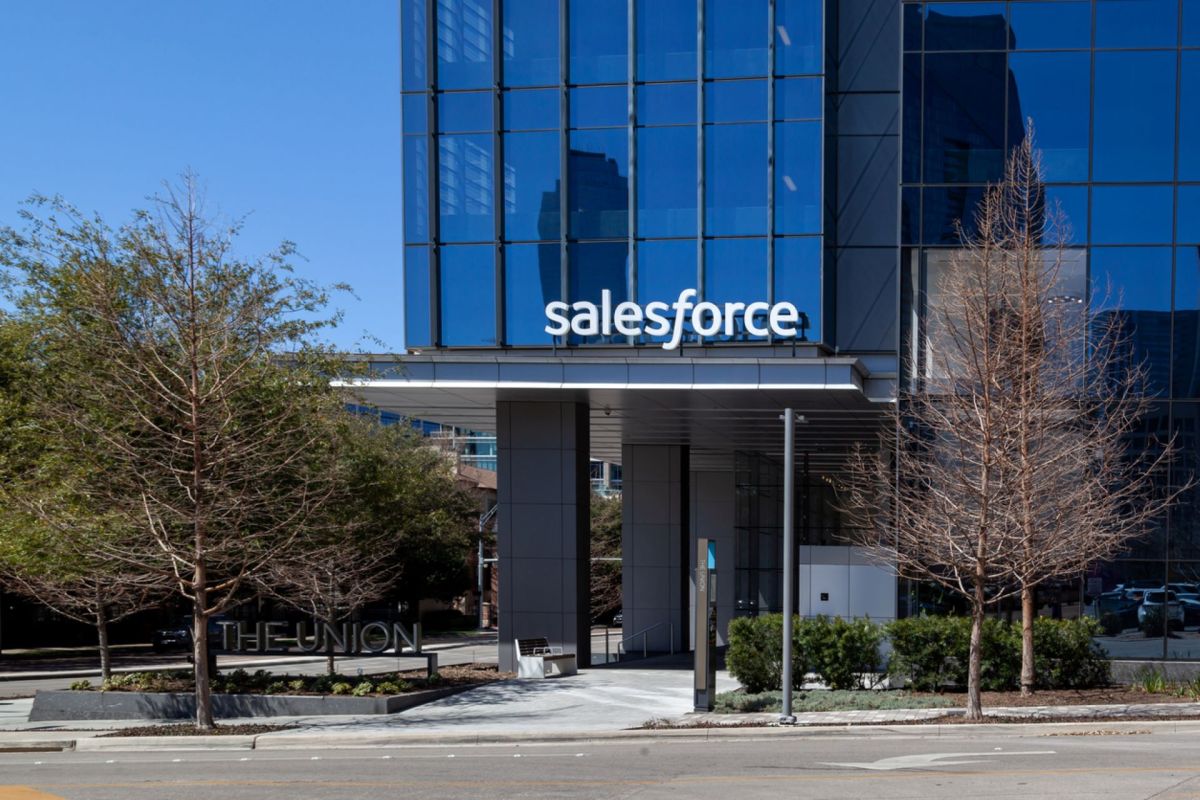California-based company Salesforce is proving that sustainability can be profitable after implementing its climate action plan.
Last year, prior to the U.N. Climate Change Conference in Dubai, United Arab Emirates, chief impact officer Suzanne DiBianca discussed her company's achievements with the BBC, highlighting how getting people involved in issues that matter to them can result in major positive impacts.
In its six-pronged action plan, Salesforce focused on pollution reduction, carbon removal, tree and ecosystem restoration, education and mobilization, innovation, and regulations.
As a result, the company says it is now offsetting the pollution its operations generate, with 100% of its energy coming from renewables such as solar and wind. DiBianca also spotlighted 1t.org, which was established by Salesforce to "conserve, restore, and grow one trillion trees by 2030."
According to the organization's website, other companies committed to limiting rising global temperatures are invited to get involved, and as much as $230 billion in business opportunities and 16 million jobs could be created through the investment in the world's forests.
While our use of dirty energy is the main reason why our planet is overheating, deforestation plays a role, also contributing to the loss of biodiversity — something that could negatively affect the development of new life-saving medicines.
"My job is to ensure that our sustainability initiatives aren't seen as altruistic but rather as a business priority that is properly resourced," DiBianca told the BBC, adding, "We also support 'ecopreneurs' to inspire, enable, and foster new solutions and technologies."
Other milestones by Salesforce include its Carbon to Serve metric, which was developed by the engineering team and resulted in a 26% reduction in pollution by the department, with more effective code writing and less energy-intensive report-running among the adjustments.
The marketing team also got in on the action, taking simple steps such as prioritizing digital or reusable assets for presentations and forgoing red meat at events.
"Our research has found that there's a wide talent pool hungry to get involved in corporate sustainability. In fact, 82% of global employees want to help their company operate more sustainably but currently lack the necessary qualifications and resources," DiBianca explained to the BBC.
To help remedy this, Salesforce takes advantage of resources such as Trailhead, according to DiBianca, who said the platform's free online educational resources assist with "[upskilling] our employees on sustainability."
As for what's next, DiBianca pointed to how companies can put their resources behind global efforts to prevent disastrous overheating.
"It's going to require a lot of collaboration, a lot of regulation, and a lot of hard work to try to get as close to that goal as possible," she told the BBC.
"Each one of us has a responsibility to help," Salesforce CEO and chair Marc Benioff said in a statement in 2021. "I'm proud that Salesforce is one of the few companies to have achieved net zero residual emissions and 100% renewable energy for our operations, but we can't stop until we embrace every solution and get every business on board."
Join our free newsletter for cool news and actionable info that makes it easy to help yourself while helping the planet.









